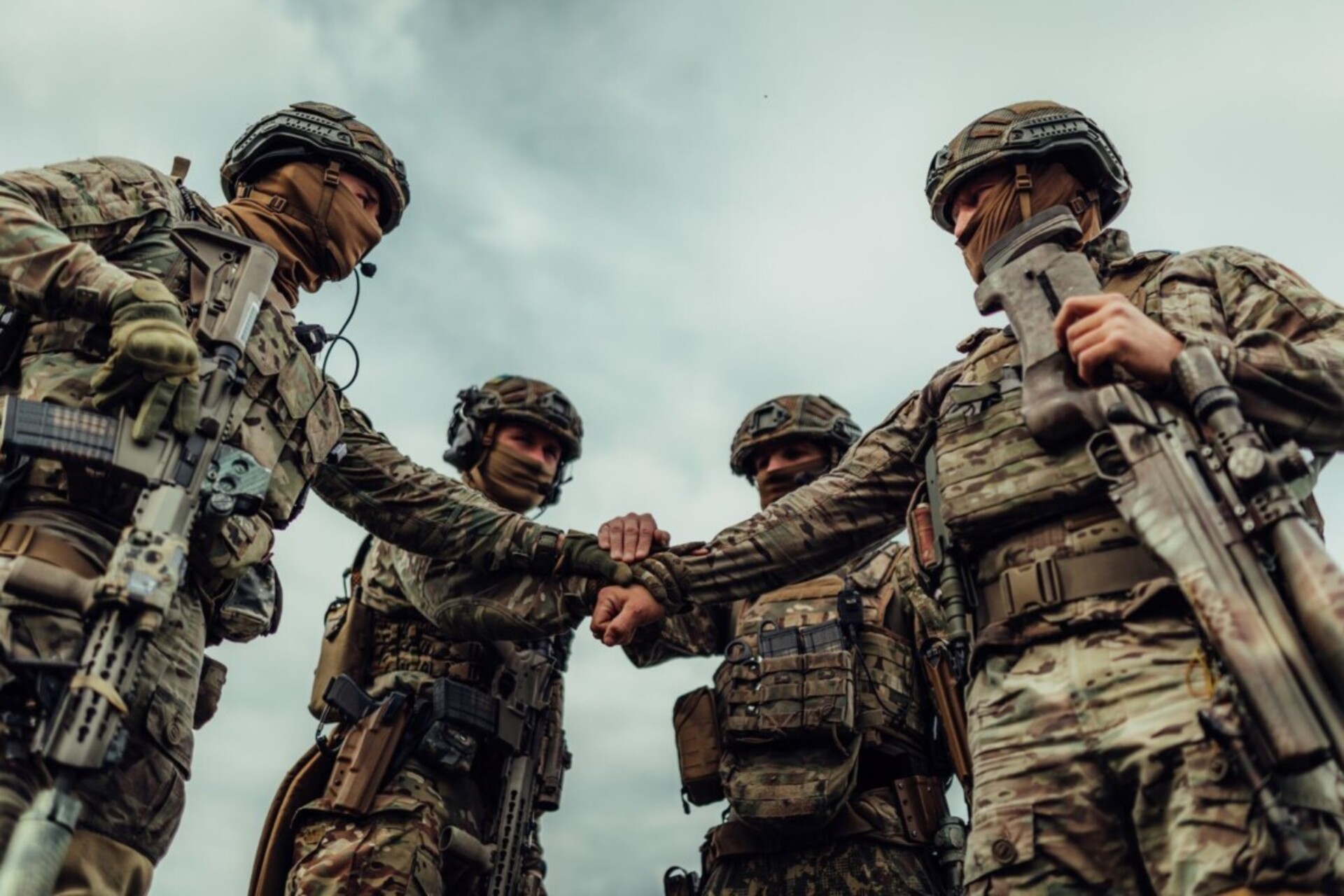The KIIS survey found out what security guarantees Ukrainians prefer
14 March 17:05
Among the various options for security guarantees, Ukrainians are the most likely – 54% of respondents – to support the idea of enhanced armed support for Ukraine, i.e., sufficient saturation of the Defense Forces with weapons.
This is evidenced by a survey conducted by the Kyiv International Institute of Sociology on February 14-March 4, "Komersant Ukrainian" reports.
The KIIS formed five dimensions-components of the “packages” of agreements:
- security guarantees
- membership in the EU;
- control over the territories;
- language policy;
- ukraine’s sovereignty.
For each dimension, there were 2-4 options-levels (e.g., for EU membership – Ukraine refuses to join the EU or, conversely, Ukraine becomes a member of the EU). The respondent was randomly assigned one level for each dimension, and this was read out together as a possible package of peace agreements. Thus, Ukrainians answered whether this package could be acceptable or categorically unacceptable.
Security guarantees.
If the package includes a complete rejection of joining NATO and without peacekeepers and additional weapons, there will be a parity of opinion – 44% in general can accept the package against 44% who are categorically against it. At the same time, even these 44% who can generally accept the rejection of NATO and the absence of peacekeepers/weapons can only be achieved if some packages include certain positive points, such as EU membership or the return of certain territories to Ukraine’s control (because some packages that included such a rejection also included EU membership and/or the return of territories).
If the package includes certain security guarantees, then there will be more people who are ready to approve it. Moreover, the scenario that will receive the most support is not even NATO membership, but enhanced military support for Ukraine. For example, if NATO membership is postponed for 10-20 years, but Ukraine receives large amounts of weapons (air defense, aircraft, tanks, etc.), 54% are ready to accept the package, and 35% are strongly against it.
The package with NATO membership is approved by 49% of respondents (38% are strongly opposed), and the package with peacekeepers – by 47% (43% are strongly opposed).
Sociologists also studied answers about joining the EU. In the case of EU membership as part of the peace agreement, 55% are ready to support the package against 34% who would be strongly against it.
If the package includes the return of control over the territories, it becomes much more attractive. Thus, if Russia retains control over all the occupied territories, 38% are ready to accept such a package against 51% who are strongly against it. If the package includes the return of southern Ukraine, its attractiveness will increase to 50% (38% are strongly against), and if it includes the return of the entire territory with Donbas and Crimea, 57% (30% are strongly against).
The requirement to grant the Russian language state status significantly worsens the perception of the package: in this case, 41% may support it in general, compared to 48% who will be strongly against it. If the Ukrainian language retains the only state and official status, 55% will support the package, while 32% will be strongly against it.
Among all the dimensions, the most influential is the preservation of sovereignty in decision-making. If the package includes a requirement for Ukraine to coordinate all important decisions with Russia, 37% are ready to accept it, while 50% are strongly against it. If Ukraine can make any decisions without Russian control, then 59% will support the package, while 30% will be strongly against it
“Most Ukrainians are against ‘peace on any terms’. In other words, although Ukrainians are open to negotiations and painful concessions, there are definitely red lines, and they will reject unacceptable options. The will of the Ukrainian nation to resist has not been broken, and despite all the difficulties, Ukrainians are ready to continue the struggle,” said Anton Grushetsky, Director of KIIS, following the survey.
The survey was conducted by telephone interviews based on a random sample of mobile numbers. A total of 1,029 respondents aged 18 and older living in all non-occupied regions of Ukraine were interviewed. The survey was not conducted among citizens who left the country after February 24, 2022. Formally, under normal circumstances, the statistical error of a sample of 1,029 respondents does not exceed 4.1%.









